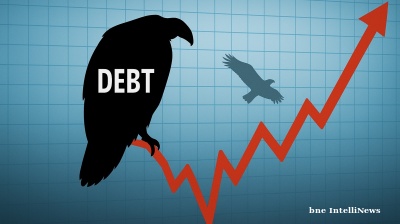Spending by Russian consumers on the biggest shopping day of the year before New Year’s Eve may fall by a quarter due to the economic slowdown and sanctions, according to the forecasts of the Tinkoff Kassa service, Kommersant reported on December 30.
Spending may decrease by an estimated 24% according to Tinkoff, Russia’s only purely online bank, the lowest level in over five years. Analysts attribute this to lower costs, the exit of foreign brands and less active seasonal sales.
Tinkoff Kassa says the last time the spending by Russians on December 30 decreased was in 2019 when it fell by just 4% y/y. This time, spending could drop by almost a quarter compared to December 30, 2021.
If in 2019-2021, on December 30, Russians spent on average 68% more than on ordinary days, then this year New Year's spending will be only 44% higher than an average day of spending during the year.
The forecast is based on depersonalized data on business turnover and customer transactions. Analysts at Tinkoff Kassa note that the trend towards a decrease in household spending was observed throughout 2022.
Real incomes in Russia have begun to fall as a result of the sanctions imposed on the economy since the start of the war in Ukraine.
Real wages in Russia in September 2022 decreased by 1.4% in annual terms, and increased by 3.2% compared to August 2022, according to the Russian State Statistics Service (Rosstat). In January-September, real wages fell by 1.5% in annual terms. High inflation rates of over 12% have been cutting into real disposable income.
“Real incomes have fallen in most Russian regions according to Rosstat. While the national indicator (a fall of 2.4%) may not seem too serious, note two things. First, this happens after a decade of stagnating and falling incomes, and second, there are significant regional differences. While oil and gas regions (and some poorer North Caucasian regions) registered growth, the situation in regions that saw an industrial breakdown this year—including many regions that were already relatively poor to begin with—is much worse, and will likely get worse still,” the Bank of Finland institute for Emerging Economies (BOFIT) reports.
Infoline predicts that y/y pre-holiday expenses will decrease by 15% in monetary terms. According to a VTB survey, almost 40% of Russians plan to keep spending in the pre-New Year period at the level of 2021, another 30% expect spending to increase and the same number to reduce it. “Those who are ready to increase spending on the holiday have become fewer this year, and there are more of those who are going to cut them,” VTB said as cited by The Bell.
So far the online shopping portal Lenta sees a slight decrease in spending and associates it with a trend towards savings Kommersant reports. The network notes that spending, for example, on caviar or sparkling wines has not decreased, consumers save money on buying jewellery, fireworks and gifts.
Focus Technologies noticed that the pre-New Year's growth in mall traffic this year was less pronounced than usual. Compared to last year, the Mall Index (the number of shopping centre visitors per thousand square meters) in the week from December 19 to 25 in Moscow decreased by 11% y/y, and compared to the same period in 2019, by 26%.
News

Flydubai expands Kenya operations with new Nairobi flights and increased Mombasa services
Flydubai launches new Nairobi flights from October 15 and increases Mombasa to daily service, bringing total weekly Kenya flights to 11 as part of African expansion.

Small, medium-sized countries establish Future of Investment and Trade Partnership
UAE joins 13 countries in establishing Future of Investment and Trade Partnership to promote open trade, strengthen supply chains and address emerging economic challenges globally.

Moldovan police investigate suspected pro-Russian propaganda financing ahead of general election
Moldova law enforcers have intensified operations against propaganda and vote-buying schemes to benefit pro-Russian candidates.
_1758059076.jpg)
Trump brands Colombia a narcotics pariah as cocaine production hits record highs
Colombia has been branded a narcotics pariah by the Trump administration, receiving its first "failing to cooperate" designation since 1997 as record cocaine production and deteriorating US-Colombia relations reach a breaking point.




